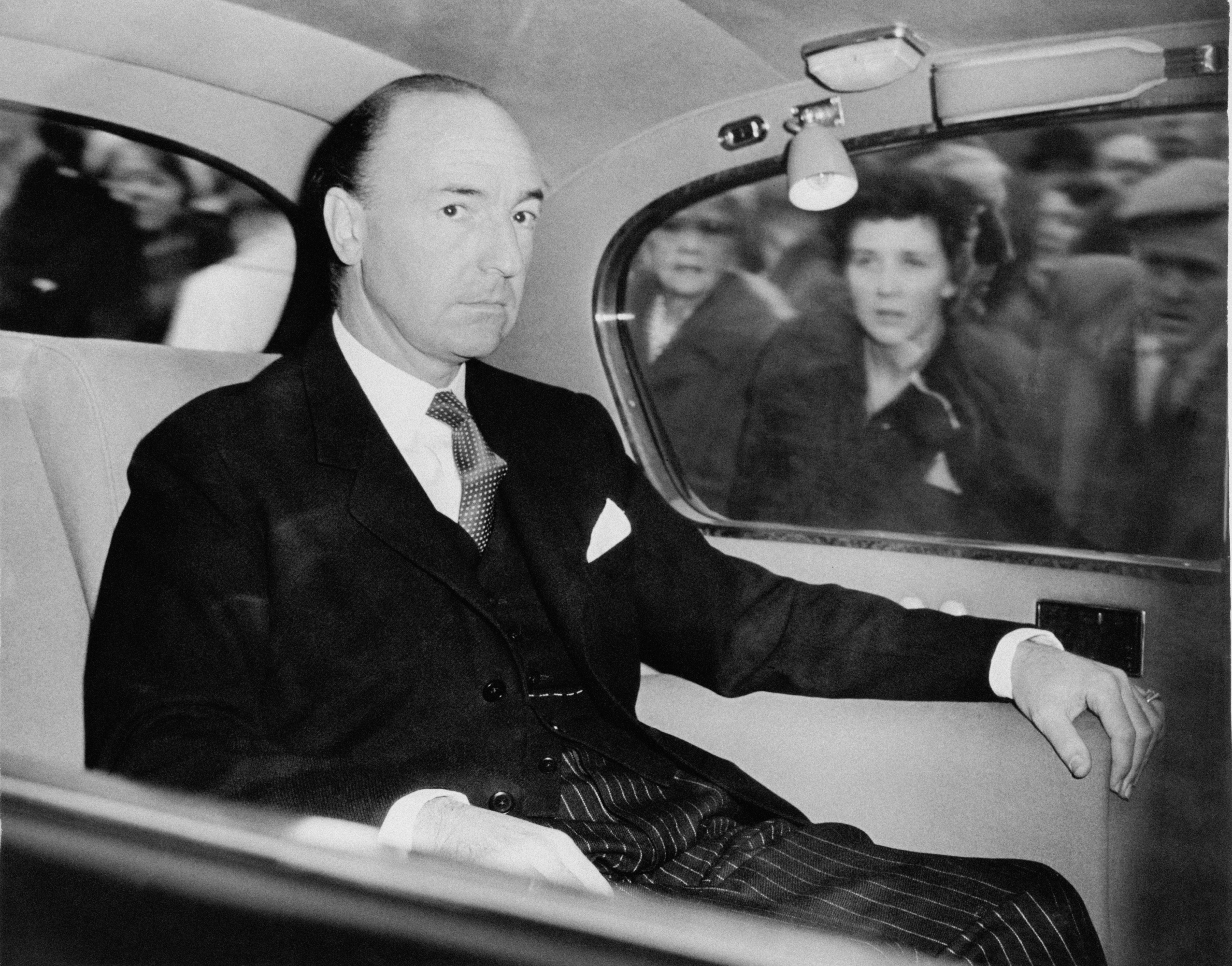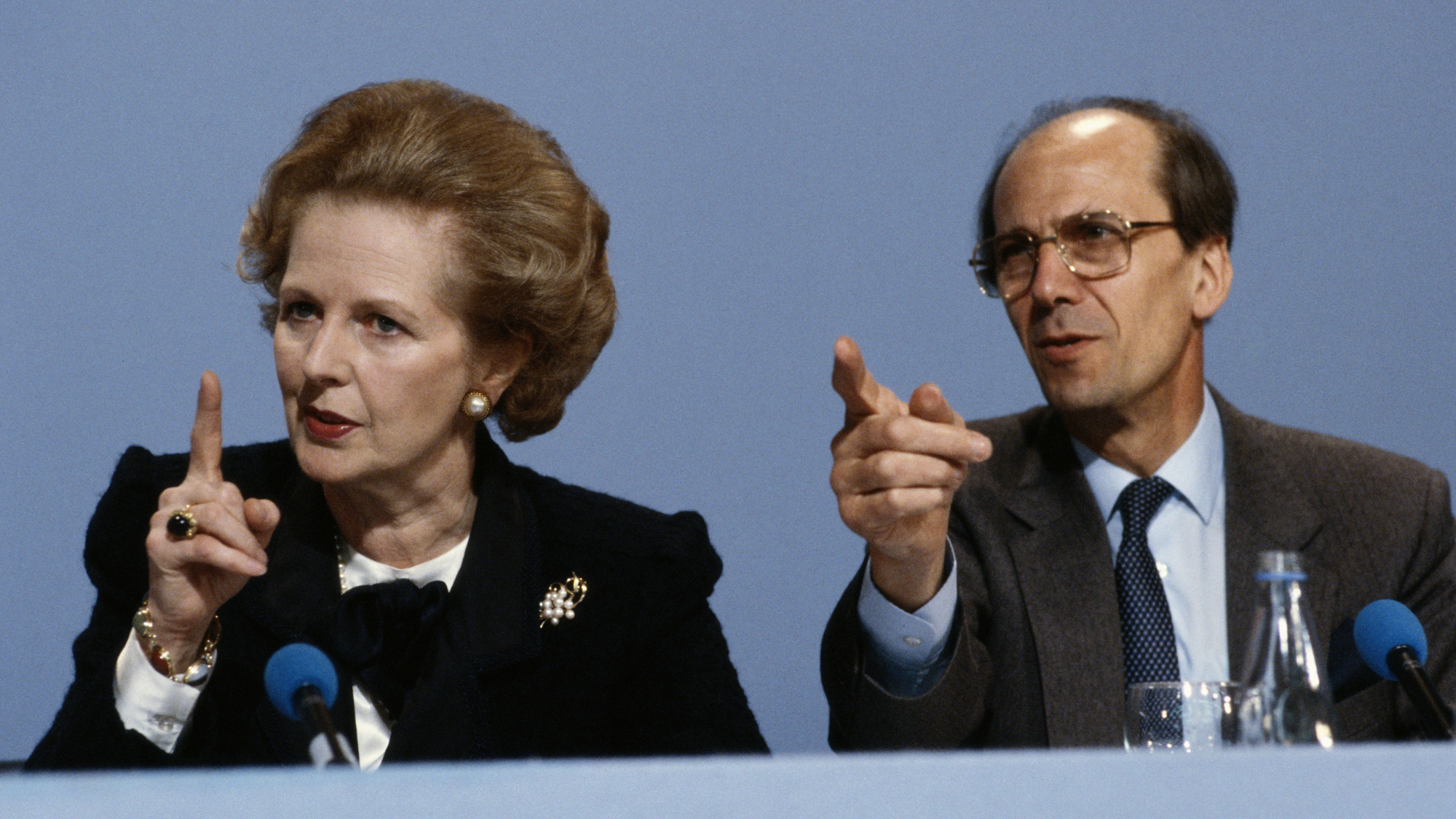Political love affairs that shook the nation
From Matt Hancock to John Profumo, politicians have found themselves caught out time and again

A free daily email with the biggest news stories of the day – and the best features from TheWeek.com
You are now subscribed
Your newsletter sign-up was successful
Images of Matt Hancock kissing his most trusted aide in his ministerial office were splashed across the front page of almost every newspaper last month – and the ensuing scandal, as well as accusations that the health secretary broke social distancing guidelines, was enough to force him to stand down.
But Hancock is not the first – and won’t be the last – politician to be brought down by an affair. Here’s a look at some of the most high-profile liaisons in UK political history.
1. John Major and Edwina Currie
“The public image of John Major was as the grey man of British politics, but he was actually an adulterous risk-taker,” writes The Spectator.
The Week
Escape your echo chamber. Get the facts behind the news, plus analysis from multiple perspectives.

Sign up for The Week's Free Newsletters
From our morning news briefing to a weekly Good News Newsletter, get the best of The Week delivered directly to your inbox.
From our morning news briefing to a weekly Good News Newsletter, get the best of The Week delivered directly to your inbox.
There had been whispers about affairs during his long political career and, in fact, Major successfully sued the now-defunct Scallywag magazine and the New Statesman in 1991 for suggesting he had an affair with a Downing Street cook. Regardless, this was a prime minister who launched the Conservatives’ “back to basics” campaign, which promoted a “traditional Conservative morality based on self-reliance, decency, the family and respect for the law”, said The Guardian in 1993.
It was a campaign that was to prove disastrous for the party, as increased press scrutiny over the private lives of MPs revealed scandal after scandal, “but the lawyers and the bloodhounds of the press missed the big story”, says The Spectator.
Indeed, Major’s four-year affair with Tory MP Edwina Currie, which took place between 1984 and 1988 when he was a junior minister, was only revealed years after the event with the publication of Currie’s diaries in 2002. They included one phrase that would stick in the public imagination: “I wish my flat was filled with one big man in his blue underpants.”
The affair took place long before Major became prime minister – but had it come to light at the time of his premiership, he would almost certainly have had to resign.
A free daily email with the biggest news stories of the day – and the best features from TheWeek.com
2. Cecil Parkinson and Sara Keays
It was an affair that “destroyed the career of a man who might otherwise have been prime minister”, wrote Martin Kettle in The Guardian. “As a tough-minded, free-market, ‘dry’ junior trade minister in Margaret Thatcher’s first term, Parkinson caught the boss’s eye early on.”
And, Kettle continues, it did “no harm to his career that Parkinson possessed, and sometimes behaved in ways that showed he knew he possessed, the matinee idol good looks of a Trevor Howard or Richard Todd”.
Holding a number of senior positions within Thatcher’s government he seemed destined for the very top – until he was forced to resign from his role as trade secretary in 1983 following revelations of a 12-year affair with his Commons secretary, Sarah Keays.
Public knowledge of the affair wasn’t what derailed his political career. Rather, it was an interview in The Times newspaper where Keays revealed that Parkinson had promised to marry her twice, before reneging on the proposals. “My baby was conceived in a longstanding, loving relationship, which I allowed to continue because I believed in our eventual marriage,” she told the paper.
“Once the Tories’ self-made golden boy, he now seemed the incarnation of Westminster sleaze,” wrote the Daily Mail, and his career would never quite recover. Indeed, as the Financial Times wrote in his obituary after his death aged 84 in 2016, he would forever be consigned “to that unfortunate group of politicians known as ‘ex-future prime ministers’”.
3. John Stonehouse and Sheila Buckley
“John Stonehouse became an MP in the 1950s, and had always been full of ambition,” writes The Guardian. To many, he seemed to be another politician destined for the top job. “But all of his ambition appeared to come to an abrupt end when he was reported missing, presumed drowned, off the coast of Miami in November 1974.”
He had left a pile of his clothes on the Miami beach and “so convinced were police and peers of his death that a minute’s silence was held in Parliament”, writes The Mirror.
Despite a police verdict of suicide, questions were raised over the MP’s abrupt disappearance, and prime minister Harold Wilson was forced to deny that Stonehouse was a Czech spy – an allegation that, incredibly, turned out to be true a number of years later. But Stonehouse would be apprehended in Australia just a month after his disappearance when someone “spotted him in Melbourne wearing a Savile Row suit and reading The Times”, said the paper.
He had disappeared, it seemed, to “escape a series of failed and fraudulent business dealings and to take up a life with his secret mistress”, writes BBC America. And, as the Mirror adds: “The deceit wasn’t confined to Stonehouse’s business life. He had also began an affair with secretary Sheila Buckley behind wife Barbara’s back.” Once in Australia he took on the identity of Joseph Markham, a deceased husband of a constituent, says the Mirror.
His disappearance meant Labour, then a minority government, would eventually be forced into a pact with the Liberal Party. He was extradited to Britain, where he was convicted of fraud, deception and theft and sentenced to seven years in prison.
Released after three years because of poor health, he would go on to marry Buckley, write three novels and appear on several television shows to talk about his vanishing act.
4. John Profumo and Christine Keeler
In perhaps the biggest political scandal of the Sixties, the secretary of state for war John Profumo lost his job after lying about his affair with the 21-year-old model and dancer Christine Keeler.
The relationship in all likelihood would have been brushed under the carpet had it not transpired that Keeler was also involved with the Soviet naval attache, Yevgeny Ivanov. “There were whispers of pillow talk”, writes History Extra – “had Keeler extracted secrets from the Secretary of State for War and passed them on to a Russian spy?”
Profumo, 48, initially denied the allegations to Parliament, threatening that he would “not hesitate to issue writs for libel and slander if scandalous allegations are made or repeated outside the House”, reported The Guardian at the time. But after Keeler testified that they had, in fact, engaged in a fleeting affair, he admitted he had lied and resigned on 5 June 1963.
Neither the FBI nor British intelligence was ever able to “confirm or deny that Ivanov had attempted to entrap Profumo or to use Keeler as an access agent”, says Britannica.
But for Harold Macmillan, the Conservative prime minister, the scandal couldn’t have come at a worse time. Indeed, “sleaze delivered the final blow for a government seen as outdated, incompetent and out of step with the public mood”, writes History Extra. Macmillan would resign later that year, and in the 1964 general election the Labour Party was ushered into power.
-
 How the FCC’s ‘equal time’ rule works
How the FCC’s ‘equal time’ rule worksIn the Spotlight The law is at the heart of the Colbert-CBS conflict
-
 What is the endgame in the DHS shutdown?
What is the endgame in the DHS shutdown?Today’s Big Question Democrats want to rein in ICE’s immigration crackdown
-
 ‘Poor time management isn’t just an inconvenience’
‘Poor time management isn’t just an inconvenience’Instant Opinion Opinion, comment and editorials of the day
-
 How corrupt is the UK?
How corrupt is the UK?The Explainer Decline in standards ‘risks becoming a defining feature of our political culture’ as Britain falls to lowest ever score on global index
-
 The high street: Britain’s next political battleground?
The high street: Britain’s next political battleground?In the Spotlight Mass closure of shops and influx of organised crime are fuelling voter anger, and offer an opening for Reform UK
-
 Is a Reform-Tory pact becoming more likely?
Is a Reform-Tory pact becoming more likely?Today’s Big Question Nigel Farage’s party is ahead in the polls but still falls well short of a Commons majority, while Conservatives are still losing MPs to Reform
-
 Taking the low road: why the SNP is still standing strong
Taking the low road: why the SNP is still standing strongTalking Point Party is on track for a fifth consecutive victory in May’s Holyrood election, despite controversies and plummeting support
-
 Norman Tebbit: fearsome politician who served as Thatcher's enforcer
Norman Tebbit: fearsome politician who served as Thatcher's enforcerIn the Spotlight Former Conservative Party chair has died aged 94
-
 What difference will the 'historic' UK-Germany treaty make?
What difference will the 'historic' UK-Germany treaty make?Today's Big Question Europe's two biggest economies sign first treaty since WWII, underscoring 'triangle alliance' with France amid growing Russian threat and US distance
-
 Is the G7 still relevant?
Is the G7 still relevant?Talking Point Donald Trump's early departure cast a shadow over this week's meeting of the world's major democracies
-
 Angela Rayner: Labour's next leader?
Angela Rayner: Labour's next leader?Today's Big Question A leaked memo has sparked speculation that the deputy PM is positioning herself as the left-of-centre alternative to Keir Starmer